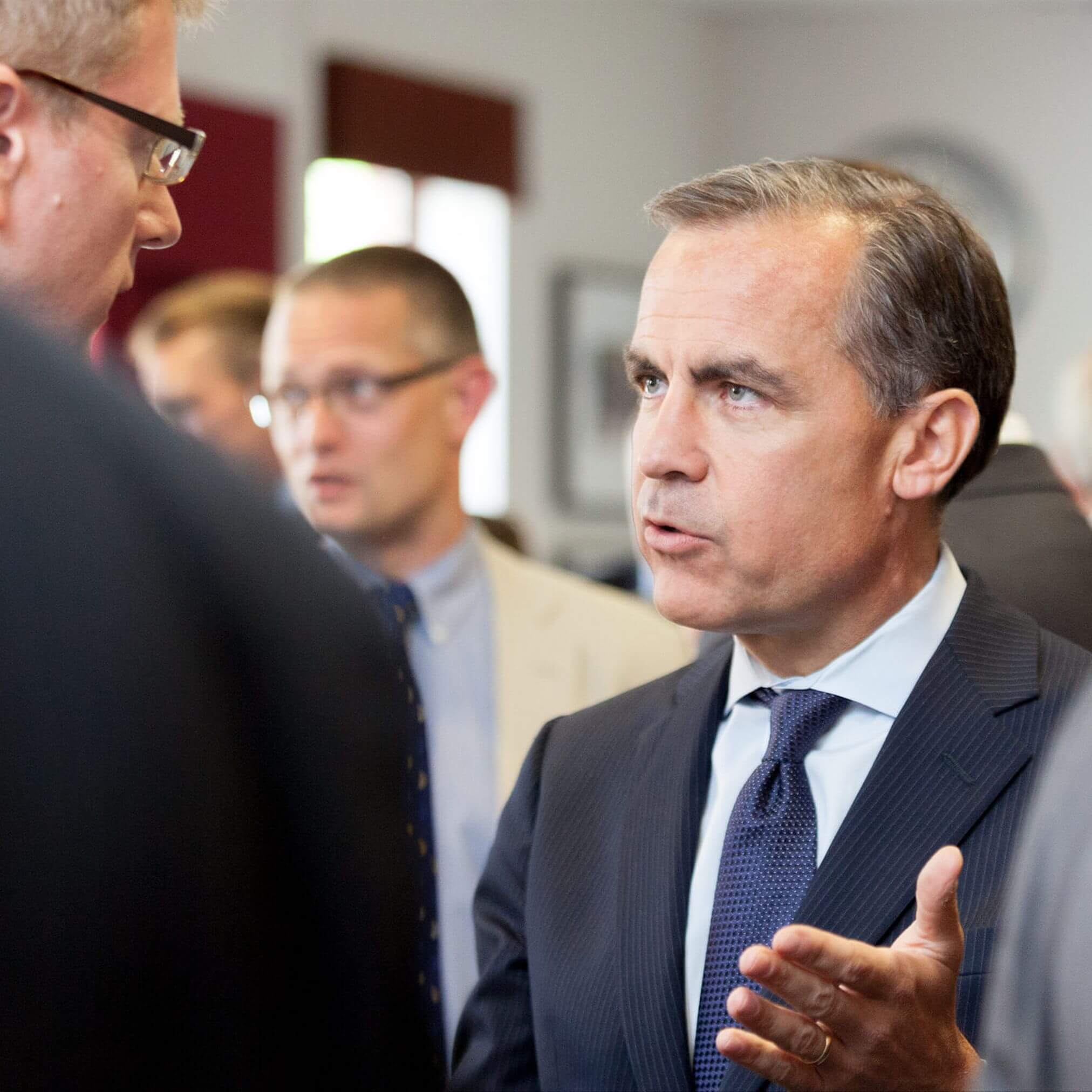

BANK of England chief Mark Carney has slammed the rise of cryptocurrencies insisting the costs to mine bitcoin is ‘enormous’.
And he said that energy consumption is worrying declaring current costs of electricity consumption used to mine the coins are “double the electricity consumption of Scotland.”
The UK’s leading banker says claims cryptocurrencies will replace fiat money like pounds, dollars and euros are “tenuous” at best but stopped short of regulation insisting the blockchain technology should not be stifled.
In a speech to the Scottish Economics Conference at Edinburgh University, Mr Carney said that that coins don’t pose a risk to the economy.
Bitcoin has fed a global speculative mania
Mr Carney compared the recent bitcoin fork to historic debasement, the practice of lowering the value of currency.
He said: “In the short run, the fixed supply of Bitcoin has fed a global speculative mania that has encouraged a
proliferation of new cryptocurrencies. As my colleague Agustin Carstens has argued, this surge of
competitors and the “forking” of Bitcoin echoes the debasement of private monies in the past.”

He said: “Even though their prospects of replacing fiat money are tenuous at best, cryptocurrencies are of growing interest to policymakers, many of whom prefer to term them crypto-assets expressly because they are not true currencies—a convention I will adopt for the balance of my remarks.
“On the upside, as I will come onto in a moment, some of the underlying technologies are exciting. Whatever the merits of cryptocurrencies as money, authorities should be careful not to stifle innovations which could in the future improve financial stability; support more innovative, efficient and reliable payment services as well as have wider applications.
“On the downside, at present, crypto-assets raise a host of issues around consumer and investor protection, market integrity, money laundering, terrorism financing, tax evasion, and the circumvention of capital controls and international sanctions.
G20 will focus on crypto assets
The issue of cryptocurrency has been an agenda leader the past few days with regulation around the corner and Mr Carney added that the issue will again be a hot topic as Argentina gets set to host the G20 this weekend.
“The Bank of England’s FPC is currently considering the risks posed to UK financial stability. And internationally the Financial Stability Board (FSB) will report to the G20 in Argentina later this month on the financial stability implications of crypto-assets.”
Mr Carney did however state that new systems will be in place soon which could encourage more transactions through real-time gross settlement systems.
Currently when you pay for your burger and beer in the pub, or your books in Blackwell’s, you probably use a
debit card, a credit card or digital wallet on your phone.
“These need to be routed through the card provider’s network. Over the past four years, the payment-related costs that your publican or bookseller pay (and ultimately pass on to you) have come down by 40% to around 8 pence per transaction.
“While these are small – and much better than Bitcoin – they remain non-negligible.
Faster payments come at a price
“That’s partly because there is limited scope for them to be competed away by innovators offering lower costs, faster speeds and more convenience, due to rigidities in the existing payments landscape, including restricted access to the UK’s major bank-to-bank payment system, Faster Payments (FPS).
“To put a number on it, indirect members of FPS face relatively high fees of around 37 pence per transaction.
“In 2016, the Bank announced arrangements under which non-bank payment service providers (PSPs) could
access RTGS, and therefore FPS directly, and we expect the first will join this spring.
“PSPs that make the most of this development and reach critical mass could see their per transaction costs
fall below those of debit and credit card providers. And the competition provided by the PSPs should
incentivise existing providers to innovate as well.”
Blockchain will change the landscape
David Merry, CEO of cryptocurrency firm Investoo Group said he welcomed the Bank of England chief’s comments on blockchain but insisted that there is a market for cryptocurrency despite Mr Carney’s scathing analysis.
He said: “The speech was very considered and laid out some interesting research.
“I welcome Mr Carney’s comments on blockchain, it’s excellent that he can see value in this technology even if he has serious concerns over the rise of cryptocurrencies.
“It’s confusing that he appeared to link cryptocurrency to money laundering and terrorism when the Treasury’s report appeared to be in stark contravention to these claims.
“I agree that cryptocurrencies pose no risk to the financial stability of the United Kingdom, however I think that over time as retailers look to adopt them for purchases they will become more prominent.
“Only a very small proportion of the public in the UK have invested at this time and from recent polling research we know that it’s mostly young people who have done so.
“It was interesting to learn that Mr Carney compared the rise of the currencies to the advent of the internet.
“Back in the late 90’s no one could have imagined how much that innovation would change the world. And experts were queuing up to say the ‘internet’ would fail.
“Only time will tell how cryptocurrencies and blockchain will change the landscape, no one will be able to predict this accurately.
“While aspects of his speech were in fact very positive, it’s very much early days and it will be interesting to see how the market will react today.”
Carney signalling that regulation is likely to come, the US Commodity Futures trading Commission (CFTC) ruling that bitcoin is a commodity, it’ll be interesting to see how this might affect the US market and whether there will be any affect to buying bitcoin in the US or anywhere else for that matter.

